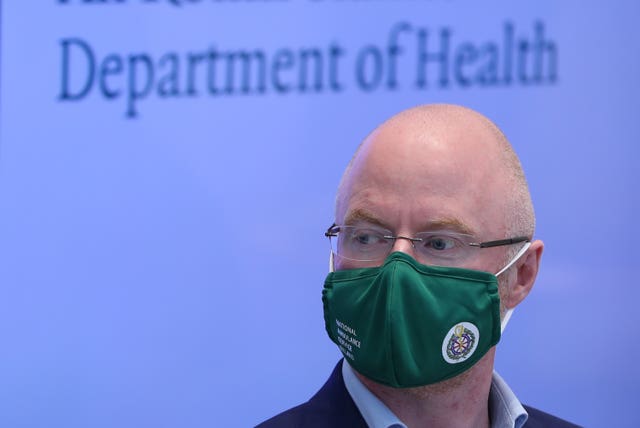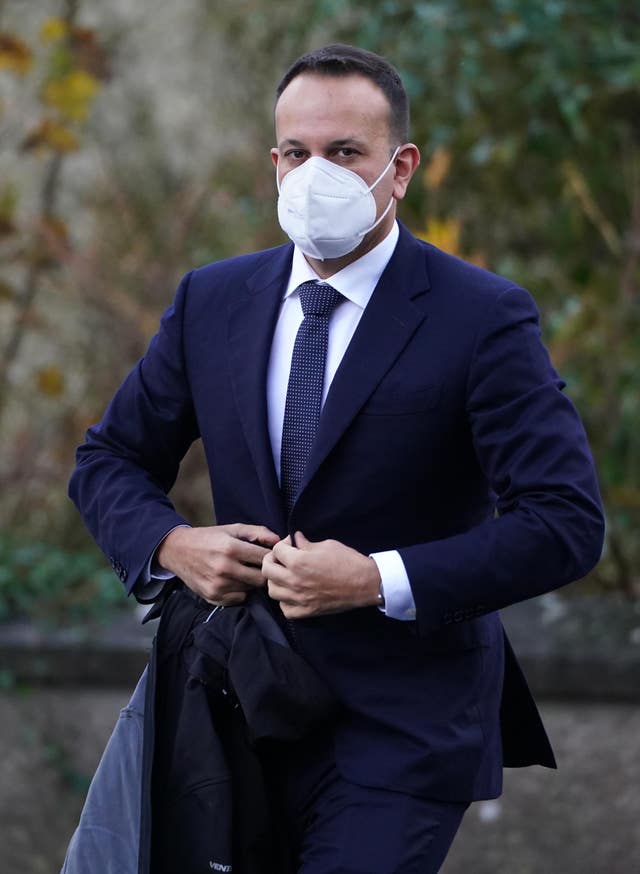Ireland’s vaccine booster programme is to be extended to cover all those aged 16 and above.
The recommendations from the National Immunisation Advisory Committee (NIAC) have been accepted by Health Minister Stephen Donnelly and endorsed by Chief Medical Officer Dr Tony Holohan.
Those already eligible for a booster include people aged 50 and over; those of any age in long-term healthcare facilities; healthcare workers; and those with underlying health conditions.
NIAC has recommended extending the programme, with new cohorts given jabs in an order of priority.
The groups, in priority order, are pregnant women aged 16 years and older; people aged 40-49; people aged 16-39, dealt with in descending 10-year age cohorts.

NIAC said the rollout of the booster among existing eligibility groups should be completed before moving to the new cohorts.
The additional dose can only be received at least five months – or three months for Janssen vaccines – following completion of the primary vaccination schedule.
Mr Donnelly noted that no-one in the new cohorts will yet be able to get the jab, as not enough time has passed since their second dose.
“I welcome NIAC’s continuous review of all international evidence relating to booster doses,” said Mr Donnelly.
“I am accepting and authorising these latest recommendations on the basis that a significant amount of planning will be required to operationalise these booster doses.
“No-one in these newly approved age cohorts has yet reached the recommended gap since the second dose.
Incidence of #COVID19 remains concerningly high, with 62,401 cases reported in the last 14 days. We need to continue to make every effort we can to drive down incidence of disease and break the chains of transmission.
— Dr Tony Holohan (@CMOIreland) November 25, 2021
“We continue to prioritise boosters because we know that they are having a positive impact on the level of hospitalisation, severe illness and mortality from Covid-19 in those aged over 70.
“I am also accelerating the booster rollout to those with underlying conditions and those in their 60s.
“I would also like to once again ask all those who are eligible for vaccination but who have yet to receive a primary dose to do so as a matter of urgency given the continuing high rates of infection in the community.
“We continue to see a high proportion of unvaccinated individuals requiring hospitalisation and critical care in ICU.”

Tanaiste Leo Varadkar welcomed that advice, adding: “It was anticipated. I think it’s becoming increasingly clear that this is going to be three dose primary course vaccine.
“A lot of vaccines, hepatitis, HPV, some of the childhood vaccines, you need three doses before you’re fully vaccinated.
“I think the advice for NIAC today really speaks to that.
“They’re recommending that everyone over 16 should receive or be offered a third dose after five months, and in the case of people had the Janssen vaccine, three months.
“They will advise us on vaccinating children between five and 11 quite soon.”
Mr Varadkar said the vaccination programme will have to be vastly scaled up to ensure millions of people get their jab over the next few months.
“That is a big logistical operation. When the vaccine programme was operating at full tilt, we were able to vaccinate between 200,000 and 250,000 people a week,” he added.
“We think we can get back up to that very quickly within the next week or two. But if you do the math, it is going to take time.
“If we need to vaccinate another four million people, it’s going to take time so it’d be well into the spring, I think, before some people get their third dose.”




Comments: Our rules
We want our comments to be a lively and valuable part of our community - a place where readers can debate and engage with the most important local issues. The ability to comment on our stories is a privilege, not a right, however, and that privilege may be withdrawn if it is abused or misused.
Please report any comments that break our rules.
Read the rules here